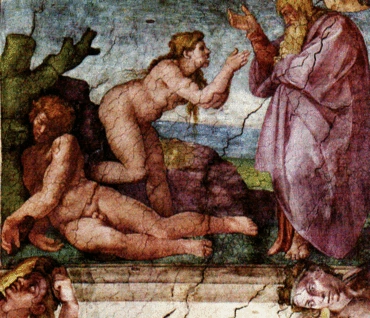Explanation of Genesis 2:21
By Brian David

Sleeping in the Bible represents a state of spiritual obscurity, in which we are distanced from the Lord and are not aware of His love and His wisdom. The Lord put the people of the Most Ancient Church (Adam) into such a state of obscurity (sleep) because they wanted to live from themselves. And in a way, humanity has been asleep ever since, unaware that our thoughts, our feelings, our very life and love flow into us from the Lord, and are not our own.
But the Lord would let Adam carry on. He took a part of him that was least alive – meaning the least receptive of the Lord, since the Lord is life – and prepared to make a new person that would give Adam the life he wanted. The people of the Most Ancient Church would be cut off from direct communication with the Lord and with heaven, but would instead – through the nearly lifeless bit of humanity represented by the rib – be able to experience life as their own.
(References: Arcana Coelestia 147, 148-151)
Arcana Coelestia #1023
1023. And I, behold, I establish My covenant. That this signifies the presence of the Lord in charity, is evident from the signification of “covenant” as shown above n. 666), where it was shown that a “covenant” signifies regeneration, and indeed the conjunction of the Lord with the regenerate man by love; and that the heavenly marriage is that veriest covenant itself, and consequently so is the heavenly marriage with every regenerate man. This marriage or covenant has been treated of before. With the man of the Most Ancient Church the heavenly marriage was in the Own of his will part, but with the man of the Ancient Church the heavenly marriage was effected in the Own of his intellectual part. For when man’s will part had become wholly corrupt, the Lord miraculously separated the Own of his intellectual part from that corrupt Own of his will part, and in the Own of his intellectual part He formed a new will, which is conscience, and into the conscience insinuated charity, and into the charity innocence, and thus conjoined Himself with man, or what is the same, made a covenant with him. So far as the Own of man’s will part can be separated from this Own of the intellectual part, the Lord can be present with him, or conjoin Himself, or enter into a covenant with him. Temptations and the like means of regeneration cause the Own of man’s will part to be quiescent, to become as nothing, and as it were to die. So far as this is done the Lord through conscience implanted in the Own of man’s intellectual part can work in charity. And this is what is here called a “covenant.”






